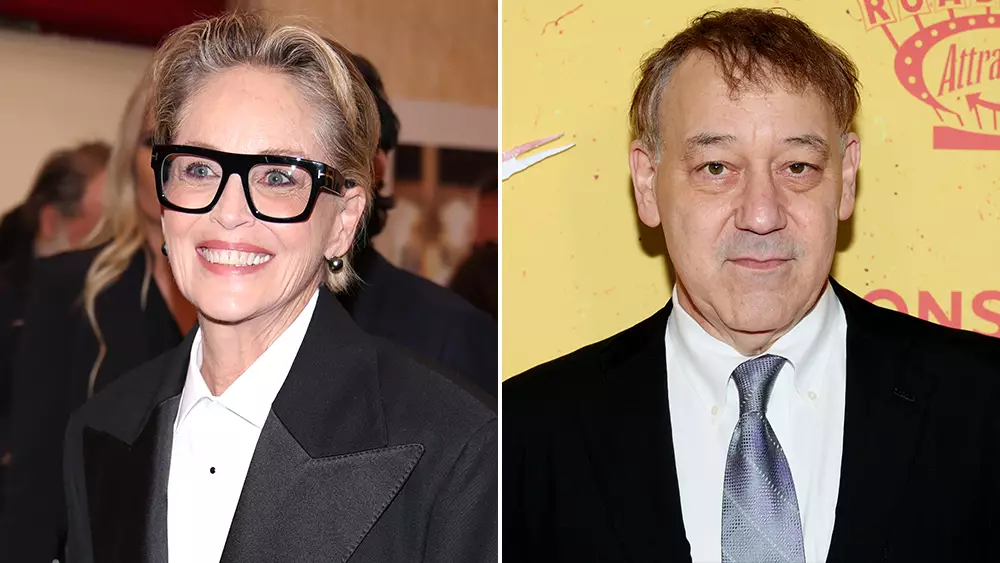At the Torino Film Festival, Sharon Stone took center stage not only to receive a lifetime achievement award but also to delve into her past experiences in Hollywood, particularly revolving around her role in the 1995 film *The Quick and the Dead*. During the question-and-answer session, Stone’s candid remarks about her collaborations, especially with director Sam Raimi, offered a multifaceted view of filmmaking dynamics while highlighting the stark contrasts she experienced compared to her work with revered director Martin Scorsese. Such reflections resonate strongly with the ongoing discourse about gender biases in Hollywood and the shifting paradigms of creative partnerships.
*The Quick and the Dead*, despite being labeled a box office disappointment upon release, has encountered a cultural resurrection, earning a place as a cult classic. The film follows Stone as a mysterious gunslinger seeking vengeance in a lawless town, a narrative rich with themes of revenge and masculinity. During her discussion, Stone emphasized the effort that went into producing the film, underlining her role in bringing talent to the project, including future stars like Russell Crowe and Leonardo DiCaprio, long before their meteoric rises to fame. Her ability to produce in a male-dominated environment showcases her dedication and skill, yet she pointedly remarked on the cold absence of gratitude from Raimi after the project— deeming it a critical reflection of loyalty in the filmmaking landscape.
Stone’s observations on loyalty specifically spotlight the emotional depth that can influence relationships within the industry. Where Raimi, as she described, lacked a familial sense of loyalty and connectivity, Scorsese represented a stark contrast, a director who fostered ongoing relationships with his collaborators. Stone articulated how her admiration for Scorsese has cultivated a lasting partnership, contrasting her experiences with the younger Raimi, who epitomized a more transient and less committed professional ethos. This comparison brings to light the importance of personal bonds in an industry that is often perceived as cold and transactional.
In a broader context, Stone addressed a significant hurdle that many women in Hollywood face: systemic sexism. Although her pitch for directing was met with praise, the industry’s reluctance to give women the reins remains an unfortunate reality. Her frustration illustrates how societal structures hinder creative ambitions based merely on gender. Claiming that the resistance was overwhelming, Stone’s journey underscores a long-standing issue that persists in contemporary cinema. The disparity between male and female directors and the challenges women face in securing funding and recognition for their projects is an issue still ripe for discussion.
Interestingly, *The Quick and the Dead* has transformed into a beloved film despite its initial lukewarm reception, sparking discussions about how narratives can resonate differently across generations. This phenomenon illustrates how cultural context can selectively valorize films over time, with viewers later embracing its thematic elements and production choices as part of a nostalgic or ironic appreciation. Stone’s assertion of pride in her contributions to the film encapsulates the paradox of a production that, while initially overlooked, eventually found its footing in cinematic discussions.
Sharon Stone’s reflections serve as both a personal narrative and a broader commentary on the complex interplays of relationships, gender, and legacy within the film industry. Her journey from a performer to a producer, marred by the challenges of gender discrimination, exemplifies the ongoing struggle for equal opportunities in creative roles. As *The Quick and the Dead* continues to gain ground as a cult phenomenon, Stone’s experiences remind us that every story—whether a success or a failure—contributes richly to the fabric of cinematic history. The conversations sparked by her candid insights are essential, encouraging deeper engagement with the systemic issues that still prevail in Hollywood.


Leave a Reply